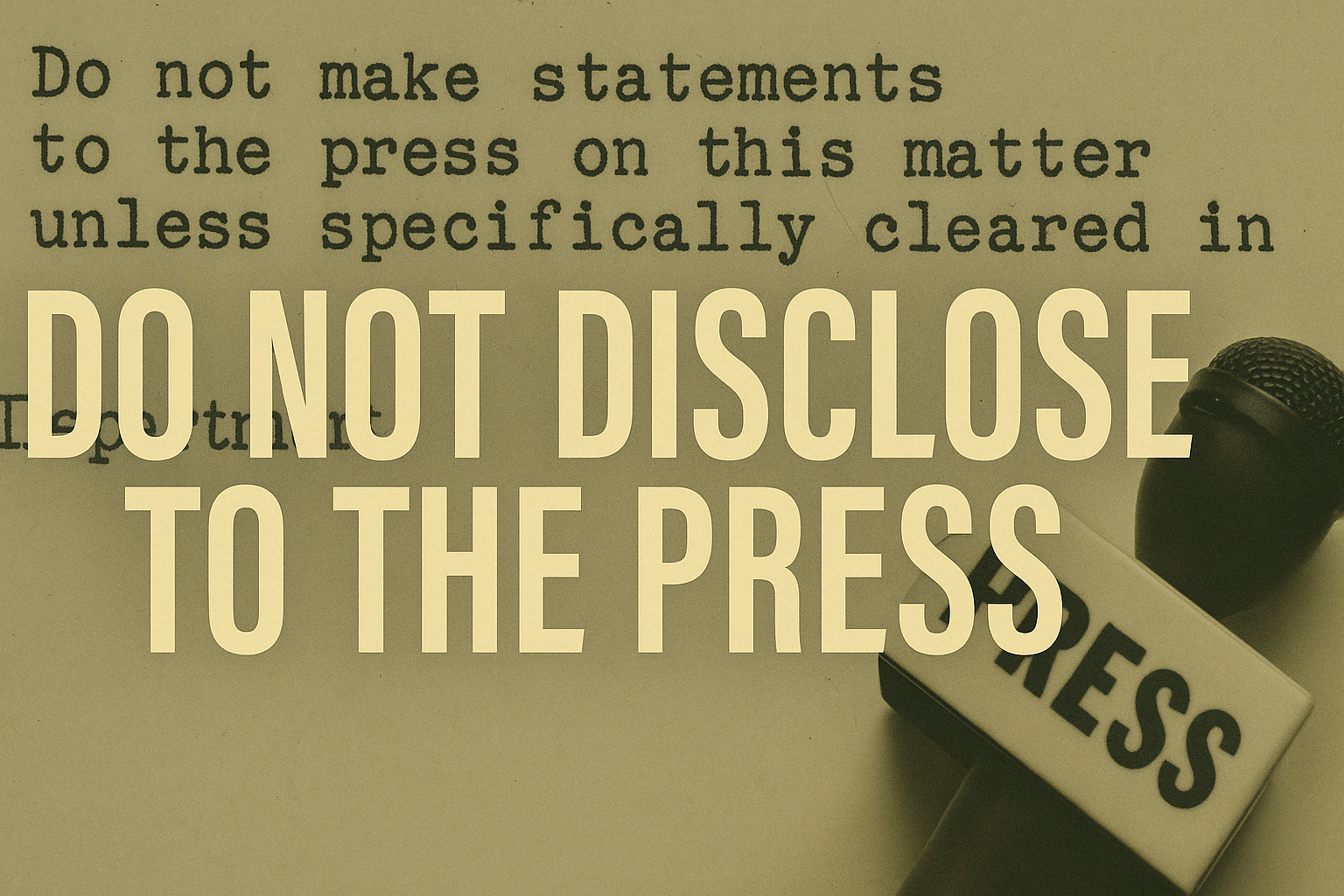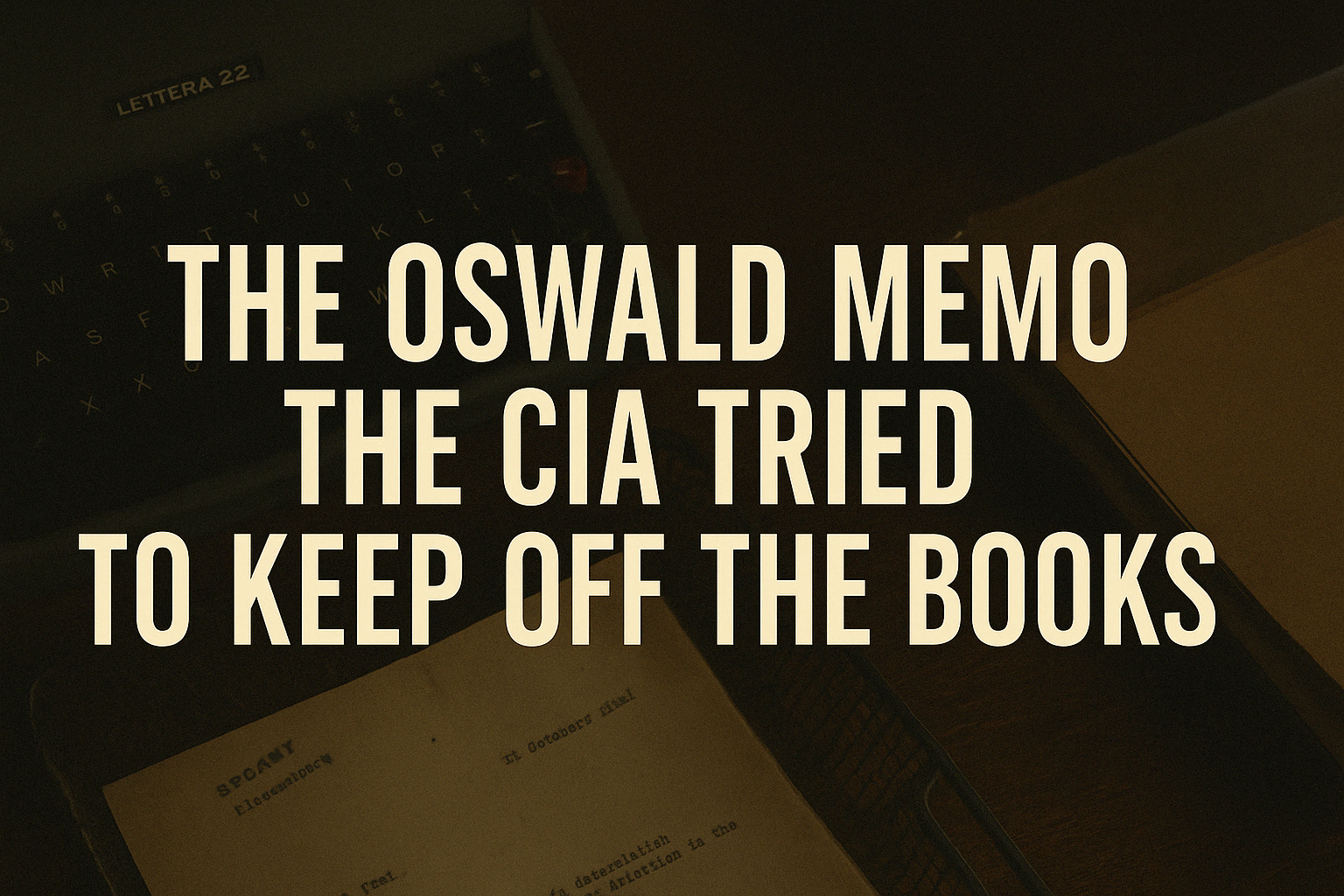In document 194-10006-10318, released as part of the 2025 JFK files, a short but pointed message from a State Department official lays down one clear instruction regarding Lee Harvey Oswald: do not speak to the press.
Written after JFK’s assassination, the directive reveals the government’s instinct to control not just what it knew-but what the public was allowed to hear.
📵 Total Media Lockdown
The document is a communication between diplomatic officers discussing external inquiries into Oswald’s defection, his time in the Soviet Union, and the actions taken by U.S. consular officials in response.
One phrase is underlined, literally and bureaucratically:
“Do not make statements to the press on this matter unless specifically cleared.”
No elaboration. No exceptions. Just an order: stay quiet.
🕳️ Why the Silence?
The memo doesn’t explain why press contact should be avoided. But the timing-mere days after the assassination-suggests fear of embarrassment, political fallout, or worse: the appearance of complicity.
Oswald’s file raised uncomfortable questions:
- Why did the U.S. let him back in?
- Who approved his passport?
- Why was he seemingly unmonitored?
The memo’s authors didn’t want to answer those questions-at least, not publicly.
🧱 The First Instinct Wasn’t Transparency
The order to avoid the press wasn’t about national security-it was about narrative control. The memo’s language emphasizes internal handling, agency coordination, and strict message discipline.
In 1963, the State Department wasn’t asking how Oswald slipped through.
It was asking who might make the Department look bad if they spoke out.
🧩 Silence That Shaped the Story
This memo didn’t shape the Warren Commission. It didn’t change history. But it defined the first days after the assassination-when agencies had to decide: say everything, or say nothing?
The State Department chose silence.
And that silence became policy.


